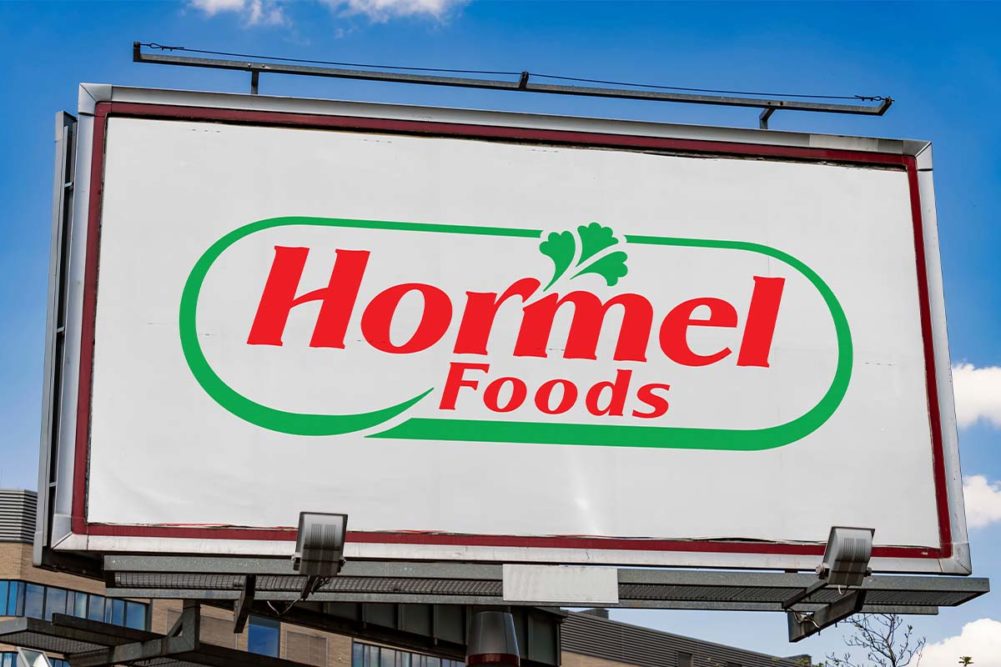AUSTIN, MINN. — Elevated inventory levels, supply chain inefficiencies and a soft market for snack nuts led Hormel Foods Corp. to report weaker-than-expected first-quarter results earlier this year. While the company took steps to address those challenges during the second quarter, it also saw signs of recovery from its Jennie-O Turkey Store business after highly pathogenic avian influenza (HPAI) limited the turkey supply, and those benefits are expected to carry through the rest of the year.
“We continue to make progress improving our margin structure as evidenced by a sequential increase in operating margins during the quarter, even with our actions to reduce elevated inventory levels,” said James P. Snee, chairman, president and chief executive officer, during a June 1 conference call to discuss second-quarter results. “In addition to managing costs and driving supply chain savings through continuous improvement programs, our inflation-justified pricing actions are leading to gradual margin improvement. We have announced targeted pricing actions effective at the end of the third quarter on additional retail items and are evaluating further pricing actions accordingly.”
Of equal importance, Hormel Foods also saw significant distribution gains for the Planters business.
“We introduced much-needed innovation to the category with flavored cashews and new corn nuts varieties,” Snee said. “And we shifted promotional resources to drive consumption for the Planters brand.
“The brand saw shipments increase 8% for the quarter, aided in part by the strong promotional execution. While early, data for the latest 13-week period on a volume basis indicates that the Planters brand is outpacing the packaged nuts and seeds category and is showing positive takeaway growth for peanuts and cashews.”
Turkey volume recovery is allowing Hormel Foods to sell a fuller portfolio of products across its business units.
“Turkey markets moved lower in the second quarter and have continued to decline due to a rapid recovery in supply,” said Jacinth C. Smiley, chief financial officer. “We are again producing full assortment of turkey items, and our teams are selling with confidence into the retail, foodservice and international markets.
“As we said last quarter, demand for Jennie-O Turkey products remains positive, and we expect improved meat availability in the back half of the year to drive higher sales volumes for our turkey business, offsetting the impact of market declines and higher fee positions.”
For the second quarter ended April 30, Hormel Foods earned $217.2 million, equal to 40¢ per share on the common stock, and down from the year before when the company earned $261.6 million, or 48¢ per share.
Quarterly sales fell to $2.98 billion from $3.1 billion the year before.
The sales decrease was partially attributed to the impact of HPAI on Hormel’s turkey supply chain.
“In addition to the large headwind from turkey, net sales were negatively affected by significant pork deflation during the quarter,” Snee said. “This had the most profound effect on the retail bacon and foodservice value-added portfolios.”
In Retail, the company’s largest business unit, sales fell 4.2% to $1.9 billion from $2 billion the year prior. Retail volumes fell 7.1%, going to $766.3 million lbs in the second quarter from $824.5 million lbs the year before. Segment profit fell 19% to $153.2 million.
In the Foodservice business unit, volumes fell 1.3% and sales fell 3.1% to $881.4 million. Segment profit rose 7% to $145.4 million during the quarter.
International unit volumes fell 3.8% to 78.7 million lbs. Sales decreased 3.2% to $179.9 million and segment profit fell 50% to $13.6 million.
The company reaffirmed its guidance for the full year with sales expected to grow 1% to 3% over the year before and earnings per share to be in a range of $1.70 to $1.82.
"We expect sales and earnings growth in the back half of the year," Snee said. "We anticipate continued growth from our Foodservice segment and an inflection in our International segment to be the primary drivers for growth. All of our businesses are expected to benefit from higher turkey volumes and improved fill rates in key categories, such as bacon, pepperoni, snack nuts, and for our Spam family of products.”



